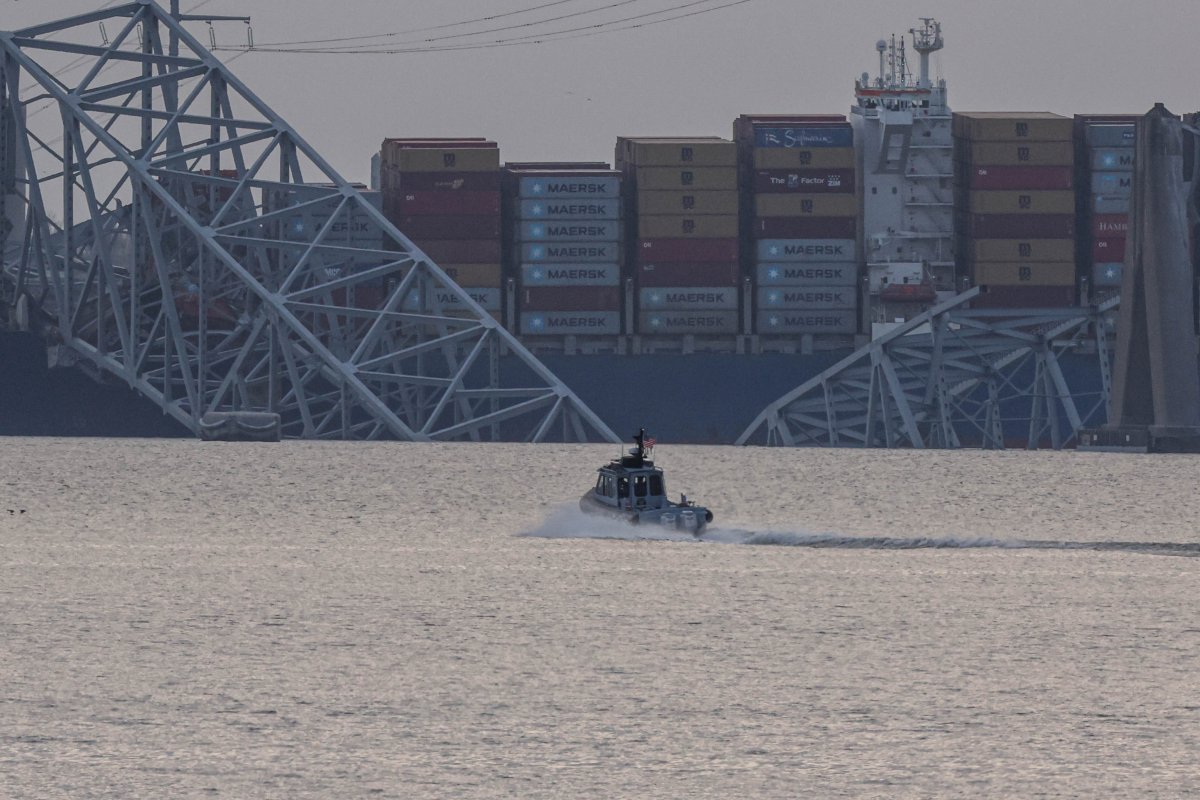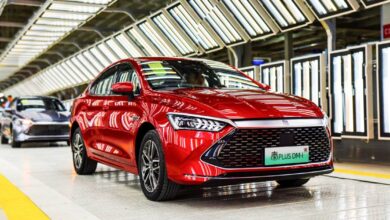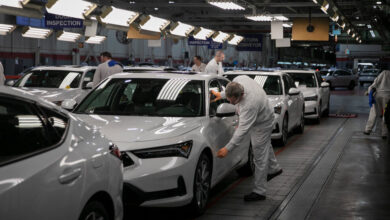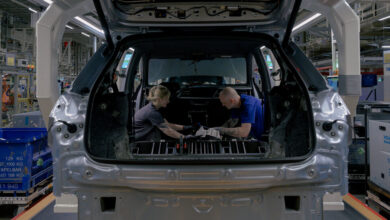Baltimore Bridge Collapse Forces Car Companies To Change Shipments

The closure of the Port of Baltimore after the collapse of the Francis Scott Key Bridge on Tuesday is forcing car manufacturers to adjust and look for alternatives for the transport of vehicles.
The Port of Baltimore is the largest handler of import and exports of automobiles and light trucks in the U.S. Last year, nearly 850,000 cars came through the port, but that has now been suspended as authorities look to rebuild the bridge, which they acknowledge may take time.
Automakers tell Newsweek that the suspension of activities may lead to some disruption of their operations and that they were exploring alternatives.
“The Port of Baltimore is an important waterway for the automotive industry,” a spokesperson at Stellantis, makers of Chrysler, Jeep, Dodge and Maserati, told Newsweek in a statement.
“We are initiating discussions with our various transportation providers on contingency plans to ensure an uninterrupted flow of vehicles to our customers and will continue to carefully monitor this situation.”

Kena Betancur/Getty Images
Experts say that some options that could pick up the slack include the Port of New York and New Jersey, the Port of Savannah in Georgia and the Port of Virginia.
“The good news is that the Ports of Virginia and New York/New Jersey were processing noticeably more containers in 2022 than their historical average. Therefore, odds are there is some capacity for rerouting from the Port of Baltimore,” Ryan Sweet, chief U.S. economist at Oxford Economics, said in a note shared with Newsweek.
But he acknowledged that a prolonged pause may cause some supply chain disruption.
Toyota North America told Newsweek that while the Port of Baltimore was not its primary route for its North America operations, they will feel the consequences of its halt in service.
“There will be some impact, primarily on vehicle exports. At this time, we do not anticipate a significant disruption, but we are evaluating the situation closely to determine the longer term impact and countermeasures,” a spokesperson said.
Ford, meanwhile, was already looking for other options.
“Where workarounds are necessary, our team has already secured shipping alternatives,” a spokesperson told Newsweek in a statement.
GM also said that they were scouring for substitutes.
“We expect the situation to have minimal impact to our operations. We are working to re-route any vehicle shipments to other ports,” a spokesperson said.
Some supply chain experts say the Port of Baltimore is a key cog to the economy of the area, responsible for 15,000 jobs and bringing in billions of dollars in business income to the state of Maryland.
The port handles 50 ocean carriers and 1,800 trips a year are made to the hub, according to state data. The halt in shipping could cost an estimated $9 million for each day that the port remains shut down, according to Patrick Penfield, a professor of supply chain practice at Syracuse University.
Authorities have said that it may take time for the Key Bridge to be reconstructed after a 1,000-foot-long Singapore-flagged vessel, the Dali, headed for Sri Lanka, struck a column that caused parts of it to break into pieces and fall into the Patapsco River.
Eight construction workers on the bridge plunged into the water with six now presumed dead. The remaining two workers have been accounted for, authorities said.
President Joe Biden said on Tuesday that the federal government was ready to fund the Key Bridge’s revival, which took five years to build, costing about $60 million. It has been in operation since 1977 and thousands of motorists rely on it to connect to the region.
The Port of Baltimore said in a statement that it was not clear how long traffic into the hub will stay suspended.
“At this time we do not know how long vessel traffic will be suspended. As soon as that is determined we will provide an update. Until then please keep those involved in your prayers,” it said.
U.S. Transport Secretary Pete Buttigieg, who traveled to the area on Tuesday, spoke of the significance of the bridge to the local economy and warned that reconstruction will take time.
“This is no ordinary bridge. This is one of the cathedrals of American infrastructure. It has been part of the skyline of this region for longer than many of us have been alive,” he said during a press conference. “So the path to normalcy will not be easy. It will not be quick. It will not be inexpensive. But we will rebuild together.”
Uncommon Knowledge
Newsweek is committed to challenging conventional wisdom and finding connections in the search for common ground.
Newsweek is committed to challenging conventional wisdom and finding connections in the search for common ground.



